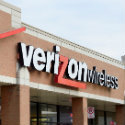
Verizon remains the only US operator that plans to charge extra for 5G. All of the country's other nationwide providers, regional operators and MVNOs – including MVNOs of Verizon – are, so far, not charging extra for 5G.
Verizon explained that it can charge extra for 5G because it's providing a differentiated service.
"When you deliver a differentiated service, you can get a differentiated price point," Verizon CFO Matt Ellis explained during a recent investor event. Ellis pointed to Verizon's recent demonstration of 4.2Gbit/s speeds on its commercial 5G network, noting such speeds are dramatically faster than what Verizon offers even on its wired Fios network.
The speed of Verizon's 5G network is clearly borne out by recent tests from RootMetrics. The firm found that Verizon's commercial 5G network provided dramatically faster speeds than any other operator, albeit from a much smaller number of locations.
Figure 1:  RootMetrics conducted 5G testing across a range of cities and operators.
RootMetrics conducted 5G testing across a range of cities and operators.
(Source: RootMetrics)
"That type of experience, we believe we have the opportunity to have a different price point for," Ellis said. "If 5G doesn't offer a differentiated experience to 4G, there's limited upside to charging a customer more."
To $10, or not to $10
Verizon launched mobile 5G services early in 2019 with a $10 per month surcharge but quickly rescinded that fee after complaints of its paltry 5G coverage area. However, the operator reinstated the charge on its cheapest unlimited plan in August of 2019 – and made it clear that it would add the fee to its other unlimited plans at some unspecified point in the future.
Other operators haven't followed Verizon's lead. AT&T said its 5G service is available for no additional fee on its two most expensive unlimited plans. T-Mobile, meanwhile, offers 5G across all its unlimited plans for no extra charge – the company promised not to raise pricing, including on 5G, as part of its efforts to obtain regulatory approval to merge with Sprint.
Regional operators and MVNOs are also shying away from charging extra for 5G. U.S. Cellular confirmed it will not charge extra. Google's MVNO, dubbed Google Fi, said that unlocked phones with support for T-Mobile's 5G could access the service at no extra charge. Even Charter Communications – which uses Verizon's wireless network for its Spectrum Mobile service – said it will not charge an additional fee for 5G.
Some providers remain on the fence. Officials for Comcast's Xfinity Mobile – which also piggybacks on Verizon's network as a Mobile Virtual Network Operator (MVNO) – declined to say how the company might handle 5G pricing. AT&T's Cricket prepaid brand still hasn't disclosed 5G pricing. And MVNO Ting – which supports Verizon's network in addition to those of T-Mobile and Sprint – told Light Reading recently that "5G isn't a high priority for Ting right now given its very limited availability. That may change as it becomes a more prevalent network."
The complexities of 5G
One major factor complicating 5G pricing is the fact that the technology behaves very differently depending on what spectrum band it's in. For example, the speed of Verizon's network is due to the fact that it runs across wide swaths of highband, millimeter wave (mmWave) spectrum. While transmissions in this kind of spectrum only travel a few thousand feet in the best conditions, they can carry enormous amounts of data. While other operators like AT&T and T-Mobile have dabbled in mmWave 5G, Verizon is doubling down on the technology with plans to expand its 5G mmWave network to a total of 60 US cities this year.
5G running in the lowband spectrum that T-Mobile and AT&T are primarily using cannot reach the blistering speeds of 5G in mmWave spectrum. But it can reach millions of people.
That said, 5G pricing may evolve as operators expand their 5G services into other spectrum bands and more phones hit the market with 5G support. For example, Verizon is widely expected to expand its 5G service into lowband spectrum later this year. How that development might affect the operator's pricing remains to be seen.
— Mike Dano, Editorial Director, 5G & Mobile Strategies, Light Reading | @mikeddano
About the Author(s)
You May Also Like










